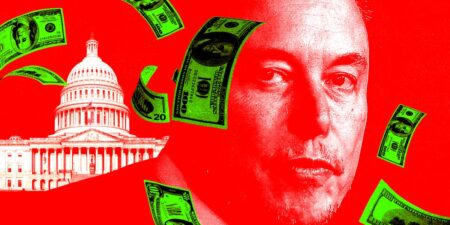- Lisa Jolly pays less for her health insurance thanks to enhanced premium tax credits.
- These subsidies aim to reduce the price of health insurance purchased through the ACA marketplace.
- The subsidies could expire next year, increasing the costs of health insurance for millions.
When Lisa Jolly enrolled in the Affordable Care Act marketplace, it was a lifeline, she said.
Jolly, 55, was diagnosed with type 1 diabetes when she was 32 years old. Since then, she’s had compounding health concerns, including neuropathy, stage 3 kidney disease, and anemia.
For most of her life, Jolly was insured through her ex-husband’s employment. But when they divorced in 2021, she lost that coverage.
“I was probably near tears every day, wondering what in the world I was going to do,” she said.
Jolly enrolled in the ACA marketplace the following year and qualified for enhanced premium tax credits, which aim to reduce the price of health insurance purchased through the ACA marketplace. She pays $96 monthly for healthcare coverage, according to documents reviewed by Business Insider.
“I just remember being extremely grateful and almost astounded that there was something out there that was going to help me be able to afford health insurance,” she said.
Jolly is among the millions of Americans who use the enhanced premium tax credits to afford healthcare coverage and who could see costs rise next year if the subsidies expire.
According to the Center on Budget and Policy Priorities, 19.7 million ACA enrollees qualified for enhanced premium tax credits this year, which is 92% of all ACA enrollees. Additionally, the enhanced premium tax credits cut consumers’ costs by about 44%, saving the average enrollee $705 annually, according to a report published on July 26 by KFF, a nonprofit health policy group.
The subsidies were introduced in 2021 as a temporary measure and expanded eligibility to include enrollees with incomes above 400% of the federal poverty line — which is $60,240 for one individual and $124,800 for a family of four. In 2022, the Inflation Reduction Act extended the subsidies through the end of 2025.
According to a Center on Budget and Policy Priorities analysis shared with Business Insider, without the enhanced premium tax credits, Jolly’s monthly payments could increase to $275, a roughly 186% jump.
“It would just have an enormous negative impact on my life,” Jolly said.
Subsidies helped Jolly afford healthcare coverage
Jolly lives in Steubenville, Ohio — a city about 30 miles west of Pittsburgh — with her 24-year-old daughter, Jessica. Jolly bought a small house in September 2023, using the funds she received from her divorce settlement.
Jolly receives a monthly spousal settlement payment, which is her only income. Due to her health complications, Jolly said she is unable to retain a full-time job. She said she is trying to land a part time job as a teaching assistant, but her health issues mean she is often faint and unable to concentrate for extended hours.
Jolly said she isn’t eligible for many social safety nets. Additionally, she said she’s burned through her savings.
“I’m struggling,” Jolly said. “When I combine rising grocery costs with rising insurance costs, it just becomes almost unbearable.”
The subsidies expiration could pose difficulties for millions of Americans
The results of the November election could determine the fate of the enhanced subsidies.
On September 25, Democratic Senators Jeanne Shaheen and Tammy Baldwin introduced the Health Care Affordability Act, which would make permanent enhanced premium tax credits. Rep. Lauren Underwood, another Democrat, introduced an identical bill in the House.
The bills would have to pass both the Senate and the House and then be signed into law by the president to come into effect. It’s unclear when a decision on the tax credits will be reached.
Republican lawmakers oppose the subsidies’ cost to taxpayers. The Congressional Budget Office and Joint Committee on Taxation estimate that making the policy permanent would increase the budget deficit by $335 billion over the next 10 years.
Cynthia Cox, a vice president at KFF, previously told Business Insider that Congress might end up with a divided House and Senate after the election, making it difficult to pass a bill.
“There’s a pretty significant chance that there’s going to be a divided power in Washington, and then it’s really anyone’s guess what happens to these subsidies, but it would probably be an uphill battle to renew them,” Cox said.
The Congressional Budget Office estimates that 3.8 million people could become uninsured if the enhanced subsidies expire, according to Reuters.
For enrollees like Jolly, the hundreds of dollars saved each month have been crucial to affording coverage.
“If we didn’t have them, I don’t know how I would have survived day-to-day,” Jolly said. “It just would have meant total ruin for myself, and I’m not even talking economically, but I mean health-wise, too.”
Read the full article here
















